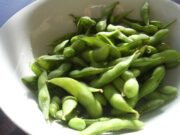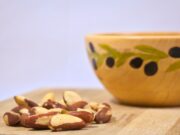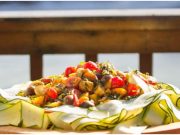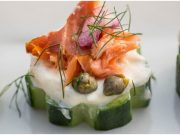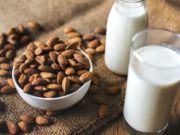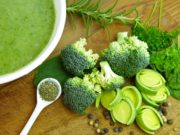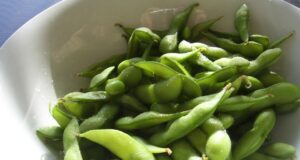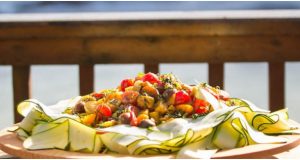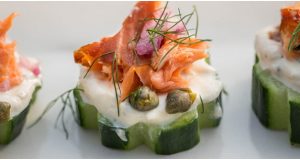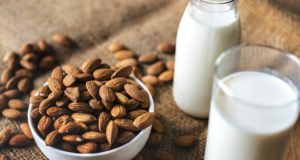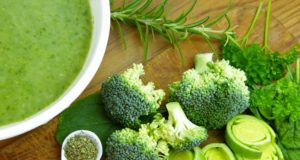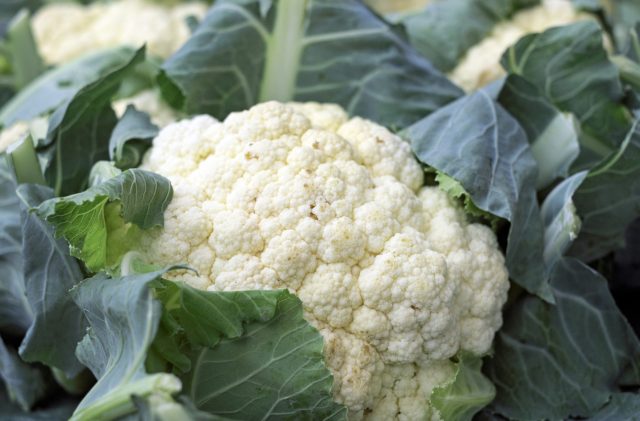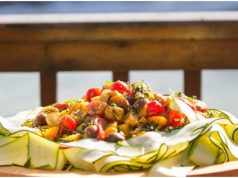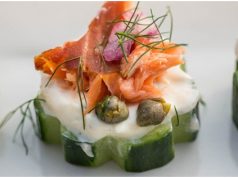The more I reflect on recipes, the more realization that the ones that really give us an oomph, and are positive for our health, are often raw and cruciferous. It is not just for protection against cancer, that is the usual citation,..cancer is significant just by itself…but the protection is really against most metabolic syndrome illnesses, including Heart Attacks, Strokes, Diabetes, Dementia, Alzheimer’s, and the list rolls on. Ergo I present an amazing Cauliflower Couscous Recipe.
Plant based salads, incorporating particularly both cauliflower, and other cruciferous vegetables are fantastic. The magic is that it is a sulphorophane and is an isothiocyanate, in that it opens up pathways that fight for instance both prostrate and breast cancer. Interestingly there is an activator called myrosinase that operates well away from heat…so my recommendation is just gently use heat for cauliflower! But also, any cauliflower is better than none! One can always make up with broccoli sprout smoothies that is the best way to achieve about 60 grams a day…but this is a whole other story!
Cauliflower Couscous Recipe. The real essence of this recipe is the substitution of carbohydrates such as Couscous!!!
Cauliflower Couscous Recipe. The real essence of this recipe is the substitution of carbohydrates such as Couscous!!! Now couscous, which Perlmutter is substituting, is really pasta and carbohydrate. This was his objective as he is acutely aware of the negatives of carbs, particularly wheat. The actual couscous is made from semolina flower AND wheat, but can contain the husk which if using couscous provides just a slightly better combination. If using a double barreled combination, personally prefer quinoa…which, in my book, is infinitely preferable, as it is a grain like seed, and contains fiber and protein, with less carbohydrates! But I like Dr. Permutter’s recipe… but also, there no harm, sometimes combining with quinoa!
This Cauliflower Couscous Recipe, made with just the cauliflower, is courtesy of David Perlmutter, MD
He points out that eating cruciferous vegetables like cauliflower, cabbage, and kale has been shown to help reduce the risk of certain types of cancer….and add, as adverted to above, for a range of metabolic syndrome diseases. Am going to reference a complete list for you of cruciferous vegetables as the ‘quid pro quo’ return from these types of vegetables is huge, and my favorite three health wise are Cauliflower, Broccoli, and Kale. This simple recipe uses Cauliflower to create a gluten-free substitute for couscous. Use as a base for sauces and stews, or serve as a side.
Servings: 6 (about 2 cups per serving)
Prep Time: 15 minutes
Cook Time: 15 minutes
Yield: about 10-12 cups couscous
Ingredients:
- 1 head cauliflower
- 2 tablespoons extra-virgin olive oil*
- 1 onion, diced
- 1 clove garlic, minced
- 2 tablespoons chopped parsley
- 2 tablespoons chopped black or green olives
Directions:
- Cut the cauliflower into pieces and place them in the bowl of a food processor fitted with the metal blade.
- Pulse cauliflower until it looks like tiny little nuggets. Watch carefully, as it doesn’t take long to turn nuggets into a puree.
- Heat the olive oil in large sauté pan over medium heat. I add try to keep heat low as olive oil is a cold oil! Add the onions and garlic. Cook just until soft, about 3-5 minutes.
- Add the raw cauliflower nuggets, season with salt and pepper to taste, and cook, stirring, until the cauliflower Just.. my emphasis! begins to color, about 5 minutes.
- Remove from the heat and stir in the fresh parsley and chopped olives.
Chef’s Tips:
No Food Processor? Well if you don’t have a food processor, you can either grate the cauliflower on the large holes of a box grater or chop it using a very sharp chef’s knife. You can also use pre-made “Cauliflower Rice,” which can be found in the produce or freezer section of most grocery stores.
Use the Core! Many people discard the core of the cauliflower and use only the florets to make “couscous.” Get more bang for your buck by using the core. Cauliflower Couscous Recipe
I add a personal tip, and use this as an opportunity to increase your intake for oils/healthy fats! Like to see that percentage as high as 65 to 70%…Both Olive Oil and Avocado Oil are excellent oils…but again remember to try to keep the heat down with Olive Oil! It is a cold oil ideally! Another excellent oil and more resilient to heat is Coconut.





